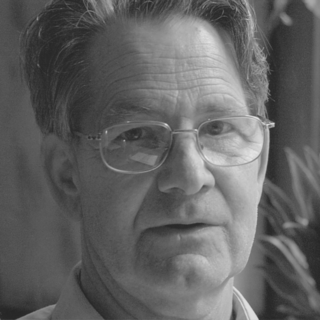Related Research Articles
Anthroposophy is a spiritualist movement founded in the early 20th century by the esotericist Rudolf Steiner that postulates the existence of an objective, intellectually comprehensible spiritual world, accessible to human experience. Followers of anthroposophy aim to engage in spiritual discovery through a mode of thought independent of sensory experience. They also aim to present their ideas in a manner verifiable by rational discourse and in studying the spiritual world seek comparable precision and clarity to that obtained by scientists investigating the physical world.

Rudolf Joseph Lorenz Steiner was an Austrian occultist, social reformer, architect, esotericist, and claimed clairvoyant. Steiner gained initial recognition at the end of the nineteenth century as a literary critic and published works including The Philosophy of Freedom. At the beginning of the twentieth century he founded an esoteric spiritual movement, anthroposophy, with roots in German idealist philosophy and theosophy. Many of his ideas are pseudoscientific. He was also prone to pseudohistory.

Christian Otto Josef Wolfgang Morgenstern was a German author and poet from Munich. Morgenstern married Margareta Gosebruch von Liechtenstern on 7 March 1910. He worked for a while as a journalist in Berlin, but spent much of his life traveling through Germany, Switzerland, and Italy, primarily in a vain attempt to recover his health. His travels, though they failed to restore him to health, allowed him to meet many of the foremost literary and philosophical figures of his time in central Europe.
The General Anthroposophical Society is an "association of people whose will it is to nurture the life of the soul, both in the individual and in human society, on the basis of a true knowledge of the spiritual world." As an organization, it is dedicated to supporting the community of those interested in the inner path of schooling known as anthroposophy, developed by Rudolf Steiner.

Marie Steiner-von Sivers was a Baltic German actress, the second wife of Rudolf Steiner and one of his closest colleagues. She made a great contribution to the development of anthroposophy, particularly in her work on the renewal of the performing arts, and the editing and publishing of Rudolf Steiner's literary estate.
Karl König was an Austrian paediatrician who founded the Camphill Movement, an international movement of therapeutic intentional communities for those with special needs or disabilities.
Sergei Olegovich Prokofieff was a Russian anthroposophist. He was the grandson of the composer Sergei Prokofiev and his first wife Lina Prokofiev, and the son of Oleg Prokofiev and his first wife Sofia Korovina. Born in Moscow, he studied fine arts and painting at the Moscow School of Art. He encountered anthroposophy in his youth, and soon made the decision to devote his life to it.
Hermann Beckh was a pioneering German Tibetologist and prominent promoter of anthroposophy.

Elisabeth Vreede was a Dutch mathematician, astronomer and anthroposophist.
Ernst Lehrs was a German anthroposophist, Waldorf teacher, lecturer and writer.
Walther Cloos was a pharmacist, alchemist, Anthroposophist, lecturer, researcher, inventor, author and pioneer in anthroposophical pharmacy.
'Herbert Hahn' was a German teacher and Anthroposophist
Wilhelm Ernst Barkhoff was a German solicitor, founder of anthroposophically oriented alternative banking, the GLS Bank, reformer of the German welfare system and inspirer of the movement for Ethical banking.
Jakob Streit was a Swiss author, teacher and anthroposophist. Besides this he worked as musician and choirmaster as well as conductor and dramaturg
Else Klink was director of the Eurythmeum Stuttgart, the first training centre for Eurythmy founded by Marie Steiner in 1923, from 1935 until 1991. In 1945, she established the Eurythmeum Stage Group, which she also led until 1991. Her work contributed centrally to establishing Eurythmy as a performing art within the culture of Europe and internationally.

The Associação Comunitária Monte Azul is a Brazilian NGO that is active in three Favelas in the southern part of São Paulo, M'Boi Mirim / Campo Limpo. The organisation was founded in 1979 by the German Waldorf teacher Ute Craemer together with the residents of the Favela Monte Azul. In the 1980s the work spread to the Favela Peinha nearby and to Horizonte Azul on the southern edge of the city. The project is a successful example in sustainable Development cooperation between equal partners.
Johannes Tautz (30 September 1914 in Koblenz am Rhein to 13 March 2008 in Dortmund, was a historian, religious scholar, Anthroposophist, author and Waldorf teacher. He concerned himself with a better understanding of National Socialism and with questions of education in the twentieth century.
Christa Ludwig is a German teacher, writer and editor, specializing in books for young people. She taught at Schule Schloss Salem before turning to freelance writing. After books and series related to horses, a novel about the Jerusalem years of Else Lasker-Schüler was published in 2018. She received the Eichendorff-Literaturpreis.

Wolfgang Schad is a German evolutionary biologist, anthroposophist and goetheanist.
Dankmar Bosse is a German geologist.
References
- ↑ "1947 – 2007: 60 Jahre Verlag Freies Geistesleben | Verlag Freies Geistesleben". Archived from the original on 2011-10-06. Retrieved 2009-01-24.
- ↑ "Der Verlag Urachhaus | Verlag Urachhaus". Archived from the original on 2010-10-29. Retrieved 2009-01-24.